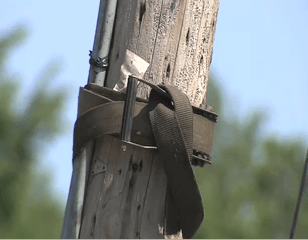While North American ISP’s call 3Mbps DSL “revolutionary” for rural America and dream of Internet Overcharging schemes like usage caps and consumption billing everywhere else, Australia is poised to take broadband to a level North America can only imagine. Watch this documentary on Australia’s fiber-based National Broadband Network future and how it will transform their economy and culture, and then ponder what your Internet Service Provider is doing these days.
While we scratch our heads wondering how to wire West Virginia for slow speed DSL, Australia is planning to rip out copper wire networks everywhere. While we fight over communities trying to get their citizens 21st century broadband speeds from community-owned providers private companies want to ban, Australia will deliver the same fiber speeds to 90 percent of the country, whether it’s ‘economically viable’ (to investors) or not. As we watch a handful of giant telecom companies try to mess with broadband pricing to further increase their profits without delivering any improvements in service, Australia is going to rid itself of artificial limits on broadband usage.
But Australia’s NBN goes much farther than just delivering fast broadband. It builds a foundation to transform virtually every aspect of Australian life:
- Rural Australia’s economic viability is guaranteed a future with the availability of fast and reliable broadband for businesses large and small;
- Telemedicine means patients seeking routine care and follow-ups can conduct them from the comfort of their own homes;
- Telecommuting means less energy consumption, less traffic, and reduced costs in roadway maintenance as workers do their jobs away from the office without wasting precious time in traffic;
- Telelearning provides rural students with access to the same high quality education city students receive, and ongoing education can be managed anytime, anywhere, even for those with existing jobs and families;
- Australian businesses can reach new customers across the world, increasing sales, whether they sell a digital product or one that leverages online shipping and tracking tools to complete delivery anywhere;
- Millions of Australians will have access to the same high speed broadband, delivering a platform for the development of large-scale, next generation applications that don’t make sense in countries where broadband is a patchwork of speeds, service, and basic availability.
- It means a broadband network so far advanced above that found across North America, it could change Australia’s standing in global commerce, and impact our own.
Embarrassed yet? Worried about America and Canada becoming broadband followers instead of leaders?
You should be.
[flv width=”640″ height=”500″]http://www.phillipdampier.com/video/Australia’s NBN June 2011.flv[/flv]
Australia’s National Broadband Network (38 minutes)


 Subscribe
Subscribe









